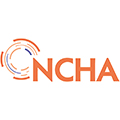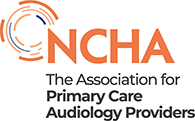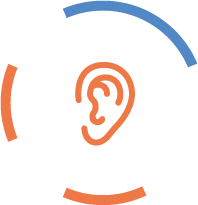28 July 2023
NCHA member update - 28 July
This week:
- Hearing aids may slow cognitive decline
- Hearing health inequalities
- Hearing loss in Health Foundation's patterns of illness report
- European hearing-aid sales results
- Hair-cell study challenges theory of irreversible damage
- Eyewear group moves into hearing technology
- Other sector news
- Health policy update
Hearing aids may slow cognitive decline
Hearing aids could reduce cognitive decline by nearly half in adults at higher risk of dementia, a new study has found.
Previous research has supported the idea that hearing loss is the largest contributor to dementia. However, the ACHIEVE study is the first randomised control trial to measure the effect of wearing hearing aids on cognitive decline.
The researchers at Johns Hopkins University carried out memory tasks at six-month intervals over three years from the hearing aid fitting. The rate of cognitive decline in the at-risk population who had the audiological intervention was nearly half that of the control group. There was no difference in the healthy population.
Another study shows that half of care home residents with dementia in the UK are not getting enough help with their hearing loss, leading to poor communication and increased isolation. A quarter of staff regularly checked that hearing aids were working. However, they reported not having the resources or the knowledge to provide residents with the hearing care they needed. NICE guidelines and other evidence-based guidance state the importance of good access to audiology services. If you have examples of hearing health inequalities or models of care that help improve access, please email [email protected].
Hearing loss in Health Foundation's patterns of illness report
Hearing loss tops the list in a Health Foundation report that predicts an extra 2.5 million people in England will be living with major health conditions by 2040, primarily due to an ageing population.
The conditions with the largest overall projected increases are hearing loss (4.6 percentage points), hypertension (3.5), diabetes (3.5) and chronic pain (2.6), conditions that are predominantly managed outside hospitals in primary care and the community.
European hearing-aid sales results
The biggest European manufacturers saw stable demand for hearing aids across the continent, with a rise of 4.7% compared with the previous year. The rise was far lower than the previous year's increase of 37%, which was attributed to the end of the Covid slump in sales.
The European Hearing Instrument Manufacturers Association (EHIMA) posted sales figures of 20.23 million units in 2022, citing a 'growing awareness of the benefits of hearing care'.
In its latest survey, 96% of hearing-aid users surveyed in France, the UK and Germany reported a higher quality of life after using hearing aids; 92% of respondents found hearing aids helpful in their jobs, and 62% wished they had started wearing them earlier.
You can find the Eurotrak survey with other EHIMA research on HearingYou.org, a new public-information portal designed to raise awareness of the importance of hearing health as a public health issue.
Hair-cell study challenges theory of irreversible damage
Hair cells in the inner ear can repair themselves after damage due to noise exposure, researchers have found.
Contrary to the commonly held belief that inner-hair cell damage is irreversible, the researchers found that gaps in the actin core of these cells can mend themselves in the presence of the protein XIRP2.
The study by neuroscientists at the University of Virginia sheds new light on the mechanism of restoring hearing after a temporary threshold shift, and has potential for future treatment strategies to avoid permanent damage.
Eyewear group moves into hearing technology
EssilorLuxottica, the largest global eyewear group, is hoping to develop 'acoustic' lenses for people with mild-to-moderate hearing loss.
The group has acquired Nuance, an Israeli hearing technology start-up. Nuance works on beamforming technology, which addresses the 'cocktail party' effect, the difficulty of understanding conversation in a noisy room. Beamforming uses an array of microphones to focus on sounds from a particular direction and enhances the signal relative to the noise.
The company expects to launch its acoustic aid glasses next year.
- The British Society of Audiology launches public consultation on Acoustic Considerations for Audiology Clinics
- Edinburgh audiology clinic offers free earwax removal to the over-75s. Read more
- RNID joins hosts the first Hearing Therapeutics Initiative summit. Register here
- Anglia Ruskin University announces industry partnership with Widex.
NHS workforce
Three leading think tanks, on the occasion of the NHS's 75th birthday earlier this month, responded to the release of the workforce plan by calling for an end to short-termism in NHS policy-making.
The key messages from the Nuffield Trust, The King's Fund and The Health Foundation were:
- Recruitment is important, but more work is needed on staff retention
- Adult social care requires urgent reform
- The government must act to improve the general population's health.
The Health Service Journal commented that the plan gives Integrated Care Systems (ICSs) a 'crucial role' even though they face budget cuts of 30%.

Press enquiries
Media enquiries should be directed to [email protected] or call 020 7298 5110.
We are happy to put you in touch with our expert policy advisers who can comment on a variety of issues.
You can also follow us on Twitter and LinkedIn.

 Your hearing and aural health
Your hearing and aural health  Commissioners and Policymakers
Commissioners and Policymakers  Member support and guidance
Member support and guidance News and views
News and views
 Hearing map
Hearing map
